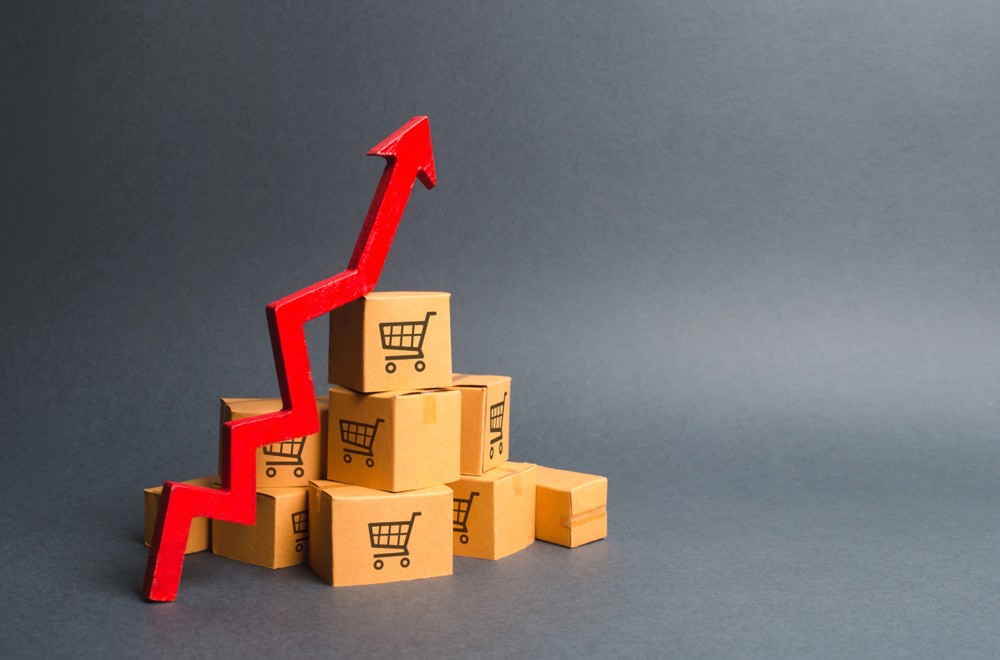Consumer Prices are Accelerating at a Historic Rate

Supply and demand is an economic concept every manufacturer understands, and they’re aware of the shifts that cause industry to lean more heavily toward one or the other. Post-pandemic, the pendulum has swung dramatically in favor of demand. Data is now revealing the extent of this historic surge in demand and its inflationary effects.
According to the U.S. Consumer Price Index (CPI), prices ticked up an alarming 5.7% over the past year. It’s the fastest rise in nearly 40 years and a clear indicator of inflation. Like it or not, the cost of making and buying American goods is trending upward, but it might not be as bad as it seems.
The cost of goods continues to rise
Since the start of the COVID-19 pandemic, consumer prices have risen at the fastest rate since the 1980s. In the last 12 months alone (2021), consumer prices rose 5.7% and core inflation rose 4.7% — more than double the 2% inflation target set by the Federal Reserve. And the persistence of rising prices is beginning to cause economic strain.

The cost of production is also rising
Higher manufacturing costs create higher consumer prices. Manufacturers have had a much harder time acquiring necessary materials since the beginning of the COVID-19 pandemic, and the materials they can acquire frequently come at an increased cost. The price of corn, for example, has increased 16% since last spring. Manufacturers use corn in the production of consumer-packaged goods.
Unless supply chains start to mend, manufacturing costs will remain high — as will the cost of consumer goods. It’s a cycle doomed to repeat itself until the alleviation of current supply chain constraints.
Rising prices could drive better solutions
One potential benefit of higher costs is the push they create for smarter, more sustainable, solutions. According to a recent Thomas Industrial Survey, many businesses are considering reshoring their supply chains to avoid waiting on overseas shipments. The survey reports, “As disruptions from the coronavirus pandemic continue to unfold, 64% of companies across the manufacturing and industrial sectors ‘are likely to bring manufacturing production and sourcing back to North America.’”
While such a sea change won’t happen quickly, manufacturers are, for now, considering options that could result in positive change.

Prices won’t stay high forever
One look at the main variables that contribute to inflation makes it clear: Prices can’t remain this high forever. What goes up must come down. It’s only a matter of time, and further examination of CPI data shows we may not have long to wait. If supply chains can recover in 2022, and the pendulum swings back toward balance, prices will likely level out. For now, the game is wait and see — and move to deescalate inflation when and where it’s possible.